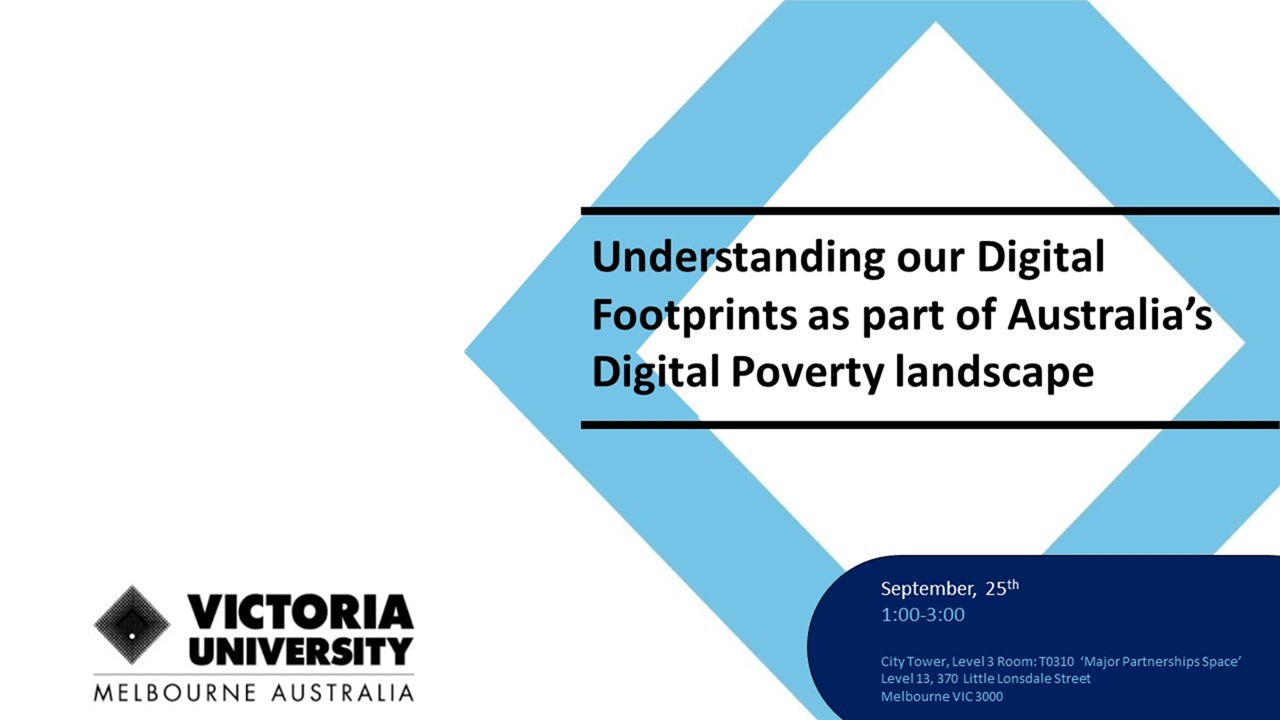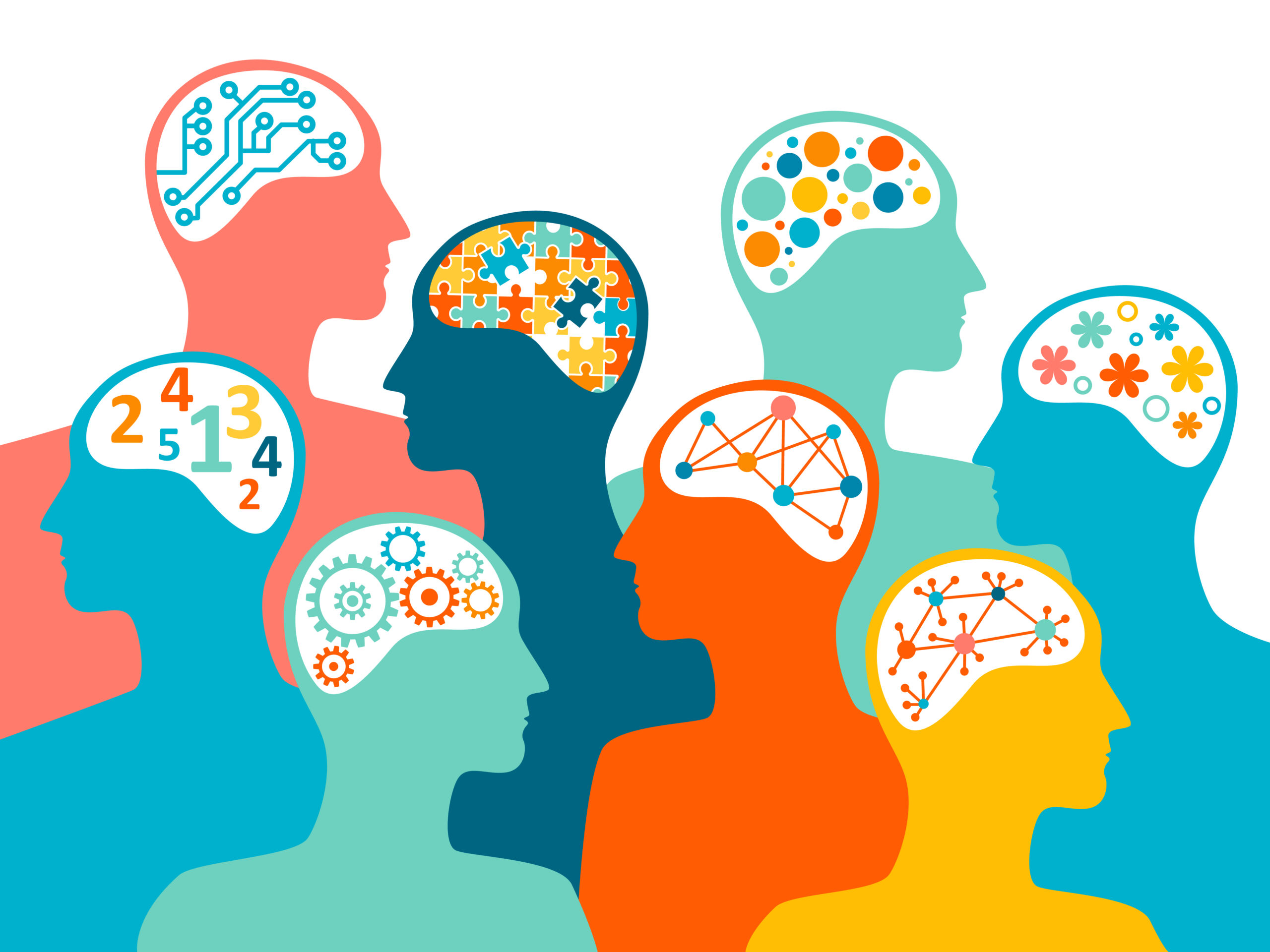Understanding our Digital Footprints as part of Australia’s Digital Poverty Landscape
Virtual1:00 PM - 1:10 PM: Welcome and Introduction Session 1. Presentations 1:10 PM - 1:30 PM: Understanding Digital Footprints Learn about the concept of digital footprints and uncover how they are created and managed. This session will explore the long-term implications of our online actions and presence. You will learn about the importance of being aware of the impacts and implications of the data collected about you, while online and how you may go about actively managing your digital footprint to protect your identity and professional reputation in the digital world. 1:30 PM - 1:50 PM: Agency, Identity, and Digital Poverty in Education Learn about how agency and identity are shaped in the digital age. This session will explore how digital poverty manifests within educational settings and its impact on student identity and agency. Gain insights into the challenges students face in navigating their digital presence and how these challenges influence their sense of self and empowerment. 1:50 PM - 2:00 PM: Q&A Session Open floor for questions 2:10 PM - 2:50 PM: The Digital Poverty Research group – National Collaboration Opportunity Overview and Brainstorming: Learn about the Digital Poverty Research Group, including its goals, ongoing […]



